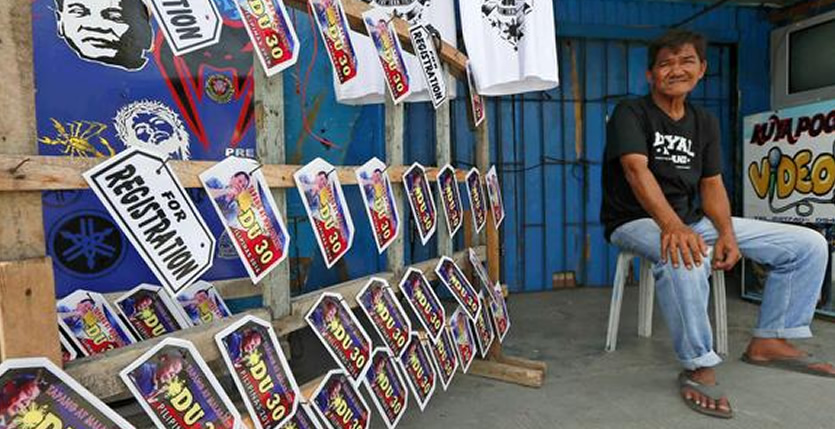The Philippines has seen two changes to its sociopolitical landscape in recent weeks, both of which could radically change the pace of economic growth.
Most notable was the resounding victory of Rodrigo Duterte in the country’s presidential election. The populist firebrand mayor of Davao won largely on the back of a bombastic, albeit vague, law-and-order campaign. The other change made fewer headlines, but was no less profound. The Philippines’ Bureau of Internal Revenue last month expanded its relationship with Globe Telecom, the country’s second-largest mobile telecommunications operator, to allow citizens to pay taxes using GCash, the carrier’s mobile money service.
These events may seem unrelated, but both have been driven by the same force: the growing wealth and aspirations of working-class Filipinos. Duterte’s win represents another swing of the Philippine political pendulum, away from an establishment-based technocratic administration and toward a populist who has strong appeal among ordinary folk.
Many of his supporters are among the 10 million citizens who live overseas. Anyone in the streets of Hong Kong, Singapore or other nodes of the Filipino diaspora last month would have seen numerous T-shirts emblazoned with Duterte’s name, and would likely have done a better job of predicting his landslide victory than the country’s political pundits.
These overseas workers have also made the Philippines a global pioneer in the development and adoption of mobile money technologies, and one of the world’s fastest-growing markets for Bitcoin-based payment services. Filipino expatriates send over $2 billion a month home — the third largest international peer-to-peer capital market in the world after China and India.
Millions of dollars are remitted home daily over mobile phones, cultivating a parallel mobile currency system in the domestic economy. The government has been looking to harness mobile money for a decade, both to raise state revenues and to increase financial inclusion. Almost every citizen has a mobile phone, but barely 30% have a bank account.
Mobile money has empowered millions of Filipinos and is helping to build wealth. Bangko Sentral ng Pilipinas, the central bank, reported last December that more than 41% of families use remittances for savings, up from 7% in 2007.
The boom has also fueled tremendous growth in the country’s knowledge economy. Filipino telecommunications companies have plowed remittance-fueled revenue into international internet bandwidth, laying the underpinning connectivity for the world’s fastest growing business process outsourcing industry, which earned more than $25 billion in export revenues last year and employs an estimated 1.3 million people.
In the age of smartphone apps, the “old school” way of remitting money via text messaging is fading fast. The Philippines is switching to cyber currencies as a way to leverage growth, and seeking leapfrog solutions to increase financial inclusion. Bitcoin-based remittance startups, aimed at overseas workers, are springing up in the Philippines, Hong Kong and other finance hubs.
The government’s attempts to eliminate “interoperability” issues with peer-to-peer transfers across different mobile companies are also linked to an effort, co-sponsored by the U.S. Agency for International Development, to create a national cyber currency called the e-peso.
All these converging factors — remittances, technology-enabled services and government policy — are contributing to the growth of a budding financial technology applications development industry. By building on strong domestic adoption of mobile money, the government stands a good chance of creating the world’s first cashless economy.
Will a Duterte administration help institutionalize the e-peso and mobile money? Given his concern for the common man, any tool to increase financial inclusion and alleviate poverty has a fair chance of receiving his blessing.
He also appears to have a penchant for technology when it serves his goals. During his tenure as mayor, Davao invested millions in “smart city” IT solutions from vendors such as IBM for public security and safety monitoring systems.
Yet Duterte’s myopic focus on crime, together with his patriarchal, parochial views on traditional society, may blind him to the modern economic realities of the Philippines, potentially stunting growth in the nascent fintech sector. For example, he has indicated plans to expand a curfew on bars and karaoke clubs in Davao nationwide when he takes office.
That could do more than just dampen night life. It could also curb the all-night life that is forcibly adopted by call center operators and other knowledge workers whose schedule is geared to the business hours of the U.S. Knowledge economy social theorists such as the U.S. commentator Richard Florida reckon that vibrant entertainment districts are essential components of successful urban creative clusters.
The very nature of digital money could also prove problematic for the new president. The growing facility with which the Philippines’ banking system has dealt with digital money creates risks that the country could turn into a cybercrime hub. In February, Philippine banks were used as the transfer point for dispersing $81 million siphoned from the Bangladesh central bank in a cyberattack.
Duterte, who staked his mayoral reputation on transforming Davao from a crime haven to a safe, business-friendly city, may not look kindly on digital currencies if he sees them as a boon to money launderers.
In the end, however, it is more likely that populist pragmatism will win out. Duterte’s macho rhetoric often elicits comparisons to Donald Trump, but the similarities largely stop there. Duterte is a veteran who works within a democratic system that rewards larger-than-life characters for promising change — and very quickly expels them if they fail to deliver.
Duterte’s successes in Davao, however brutishly achieved, were nevertheless informed by the demands of his working-class constituency. Digital money has proved essential to chipping away at poverty in the Philippines, and has the potential to accelerate innovation in knowledge intensive industries that add hundreds of thousands of new jobs annually.
A seasoned operative such as Duterte should be able to see how important the e-peso and the fintech industry are to his ability to advance the hopes and dreams of his country’s citizens.
Ross O’Brien is a technology analyst and managing director of the Hong Kong office of Intercedent, an investment and business advisory.
Source and image: Nikkei

















Join the Conversation